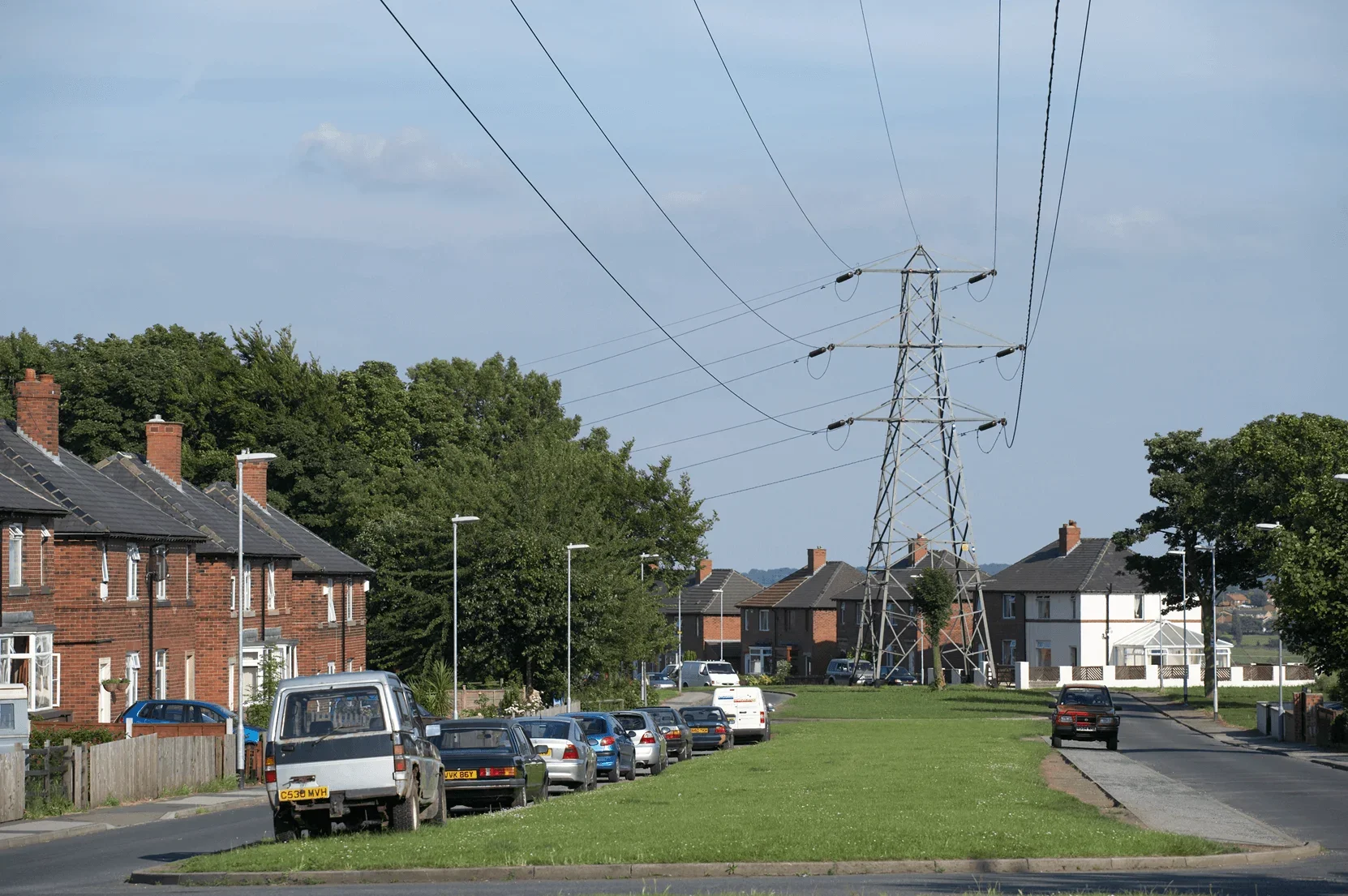BUSINESS ENERGY COMPARISON
Is it time to compare business energy quotes and switch?
By clicking ‘COMPARE TODAY'S RATES’ you agree for us to search your current energy supplier and usage though industry held data. Enter manually
Compare deals from our panel of trusted UK business energy suppliers
How to switch business energy with MoneySuperMarket
We can switch your business to a better energy deal in three simple steps
1
2
3
Business Electricity Comparison
If you want to cut your business costs, start with the basics. Electricity is essential for most businesses but it can be expensive. Comparing quotes to find the cheapest rates from our supplier panel is a quick and easy way to cut your business costs.

Our expert says
"Small business owners should consider fitting smart meters and energy management platforms to help them better understand their energy use and work out ways to cut costs. Price volatility and a more complex switching process can make the energy market tricky to navigate for small businesses. When you throw in the annoying admin involved, it's no wonder small businesses can be less likely to switch suppliers. But getting help from experts at MoneySupermarket means business owners can get all the information they need to get more cost-effective energy rates. By taking proactive steps to compare and switch, small business owners can overcome the challenges of the current energy market and secure the right energy contract for their businesses."
- Laura Hinton, Commercial Manager
Compare today’s business energy rates
By clicking ‘COMPARE TODAY'S RATES’ you agree for us to search your current energy supplier and usage though industry held data. Enter manually
Why compare business energy with MoneySuperMarket?
If you’re used to switching household energy suppliers, you probably know your way around the comparison process. But switching business energy is a bit different, as business energy tariffs are tailored to your specific needs. That’s why our UK-based energy experts are on hand to help you compare deals and support you through the switch.
To help cut the time it takes to compare business gas and electricity prices, we use smart data to find out all we need to know about your business, its energy use, and its current supplier. Once we have this information, we can compare rates from our panel of energy suppliers.
All you then need to do is choose the deal that best suits your business, and we’ll help make sure the switch goes as smoothly as possible.
How to compare business energy tariffs per kWh
Comparing business electricity and gas tariffs can be complicated because you need separate quotes for each fuel. This can make it more difficult to work out which deal is the best value for your business. That’s why it’s often handy to get some expert help.
When running a business gas and electric comparison, the first thing to look out for is the unit rate. This is measured in kilowatt hours (kWh) and is the price you pay for the energy you use.
You then need to look at the standing charge. This is a flat daily fee you pay regardless of how much commercial power you use. This covers the costs of things like maintaining the energy network, meter readings, and operating costs.
If you know these figures and have an idea of how much energy you use, you can roughly work out the cost of your monthly and annual business energy bills.
The average prices per kWh and standing charges shown below should give you an idea of what you can expect to pay, based on the size of your business.
What are the latest UK business energy prices?
Business energy prices are always changing. The price you pay for business energy depends on the size of your business, how and when it uses energy, where it's located, the supplier you choose, and more. That's why it makes sense to compare quotes instead of accepting your suppliers renewal offer.
To give you an idea of how much you might pay, here are the latest business energy rates by business size.
| Business Size | Electricity | Gas |
| Micro Business | 25.6p per kwh | 8.0p kwh |
| Small Business | 25.5p per kwh | 7.3p per kwh |
| Medium Business | 26.9p per kwh | 7.1p per kwh |
| Large Business | 25.0p per kwh | 7.2p per kwh |
Note: Prices are correct as of October 2024. Rates and bill size may vary according to your meter type and business location. The prices you’re quoted may be different from the averages shown. The figures shown are the average unit rates and standing charges on contracts sold by Bionic from October 1 to October 8, 2024.
What affects the price of business energy?
When you compare business energy, the commercial power rates you're quoted depend on several things, including how and when you use gas and electricity, the amount you use, the size of your business and its location.
Suppliers use this information to work out the cost of your quote. This includes the unit rate, standing charge, and any other fees, taxes, and levies that apply. Here's a breakdown of how and why these factors affect your business energy prices:
- The type of business you own. This dictates the patterns of energy consumption during the week, because not all businesses work Monday to Friday, 9.00 am to 5.00 pm. Businesses that use a lot of energy during the evenings and weekends will be charged different rates compared to the daytime - these rates are usually lower, because there’s less demand on the network.
- How much energy your business uses in a year. Suppliers usually offer slightly lower rates to large and industrial businesses that use a lot of energy. But if unit rates go down, sometimes the daily standing charge will go up. It’s always best to check your overall offer in terms of the cost for a full year, rather than just looking at unit prices.
- The size of your business. Your buying power can depend on whether you run a small business or a large corporation. Suppliers always look at the size of a business and its usage levels to calculate rates.
- The length of and type of contract you have. Fixed-rate contracts often come with lower rates than variable contracts. If you lock in your rates for longer, your supplier should offer preferential prices. But if you let a fixed contract expire without lining up a new one to replace it, you’ll be placed on out-of-contract rates, which can be more than 33% higher.
- Your current energy provider. You could already be with the most or least expensive supplier on the market, but you won’t know until you compare tariffs.
- Where your business is located. The region your business is in affects the quotes you’ll get, because prices vary around the country. This usually depends on how difficult it is to supply a certain area. For example, Scotland has some of the highest prices in the UK, whereas the Midlands has some of the lowest.
The amount you pay for business energy is mainly affected by the wholesale cost of gas and electricity. This is the price your supplier pays for the energy it supplies to your business, and can be impacted by anything from natural disasters to political events and conflicts.
Fixed-term business energy deals offer the best way to save money and take control of your bills. But it’s not the only thing that will affect prices.
As well as fluctuations in the wholesale price of gas and electricity, some suppliers will offer to include maintenance and care of your commercial gas system as part of their contract. Make sure you check how much this will cost and weigh up whether it provides the best value for money.
What's the difference between domestic and business energy?
The energy needs of a business are different to those of the average household. Commercial energy contracts are designed to reflect these differences. Whereas you can switch your household energy in just a few clicks of your mouse, switching business energy isn’t quite that simple. Here are a few reasons why:
Energy deals designed for your business
All businesses have unique energy demands. This is why there are none of the ‘off-the-shelf' tariffs that you might be used to when sorting your household energy.
Instead, business energy deals are tailored to meet the needs of each business. When working out your quote, suppliers will consider the location of your business, the number of staff you employ, and the industry you work in, alongside the amount of gas and electricity you use each year.
No dual fuel option
When switching household energy, you can often bag yourself a discount by getting your gas and electricity on one bill from the same supplier. This is known as dual fuel. But this isn’t an option with business energy. Although you can get your gas and electricity from the same supplier – and may even get a discount for doing so in some instances – you'll still be billed separately for your gas and electricity.
To get the best deal, you’ll not only have to ring around a load of suppliers, you’ll have to do it twice to get individual quotes for each fuel. When you compare rates with us, we only need to take your details once to compare both gas and electricity prices.
Longer price stability
While most fixed-rate domestic deals last for 12 months, business energy suppliers offer longer contracts that mean you can lock your rates in for up to five years. Three-year deals usually offer the best value and can help you beat several rounds of price rises.
No cooling-off period
When you sign up for a domestic energy deal, you’ll be given a 12-day cooling-off period during which time you can cancel your contract without having to pay a penalty fee. But this isn’t an option with business energy. That’s why it’s so important to have an expert to talk you through your options and help make sure you sign the deal that’s best for your business.
Different switching rules
You can switch to a new domestic deal whenever you want to. If you switch part-way through your contract, some suppliers will charge an early exit fee per fuel. But if you have 49 days or less left on your contract you can switch without having to pay a penalty and the switch will take place immediately.
The rules around switching business energy mean you can only sign up for a new deal when there’s a certain amount of time left on your current contract. This is known as your switching window and can be up to six months before your contract’s end date. But even if you switch early, the new contract won’t start until your current one ends.
If you’re on your supplier’s out-of-contract rates, you can switch at any time and the whole thing could take as little as five days.
How long does it take to switch business energy?
If you're on your supplier's out-of-contract, you can switch at any time. The length of time the switch takes depends on the size of your business and other things like whether you owe your current supplier money. If you run a micro business, then the switch should take no longer than five days. For businesses of other sizes, it can take up to 30 days.
If your business is still under contract with its current supplier, your new contract won't take effect until this one expires. This means that if you sign a new contract in January but your existing one doesn't end until June, you won't pay the new rates for six months. But, if prices increase during that time, comparing business energy quotes and locking in rates early can save you money. That's why it makes sense to run a business energy comparison as soon as your current contract enters its switching window.
How to compare business energy with MoneySuperMarket
As a busy business owner, it’s unlikely you’ll have the time to ring around a range of suppliers for bespoke business gas and electricity quotes. That’s where the energy experts at MoneySuperMarket can help.
One call to us is all it takes for us to compare tariffs for you from our panel of energy suppliers. We only need your postcode to start a MoneySuperMarket business energy comparison. We then use smart data to find out more about your business and its energy usage. Once we have all the info we need, we can find a competitive deal that suits the needs and budget of your business.
The final decision is always with you – we supply the quotes, and you pick the one you like best.
Give our business energy experts a call now on 0800 140 4667.
Business energy FAQs
To help you better understand how business energy switching works, here are the answers to some frequently asked questions.








